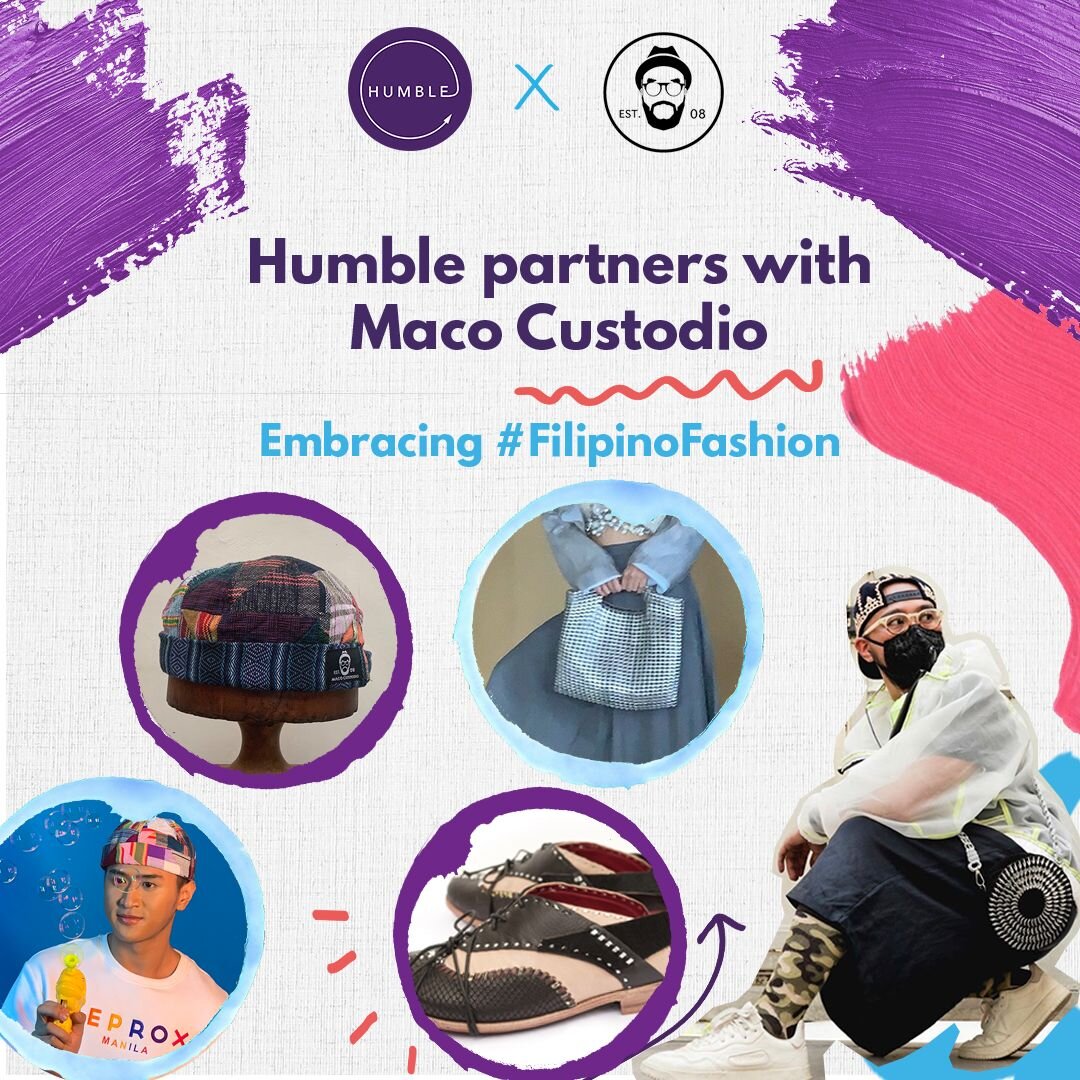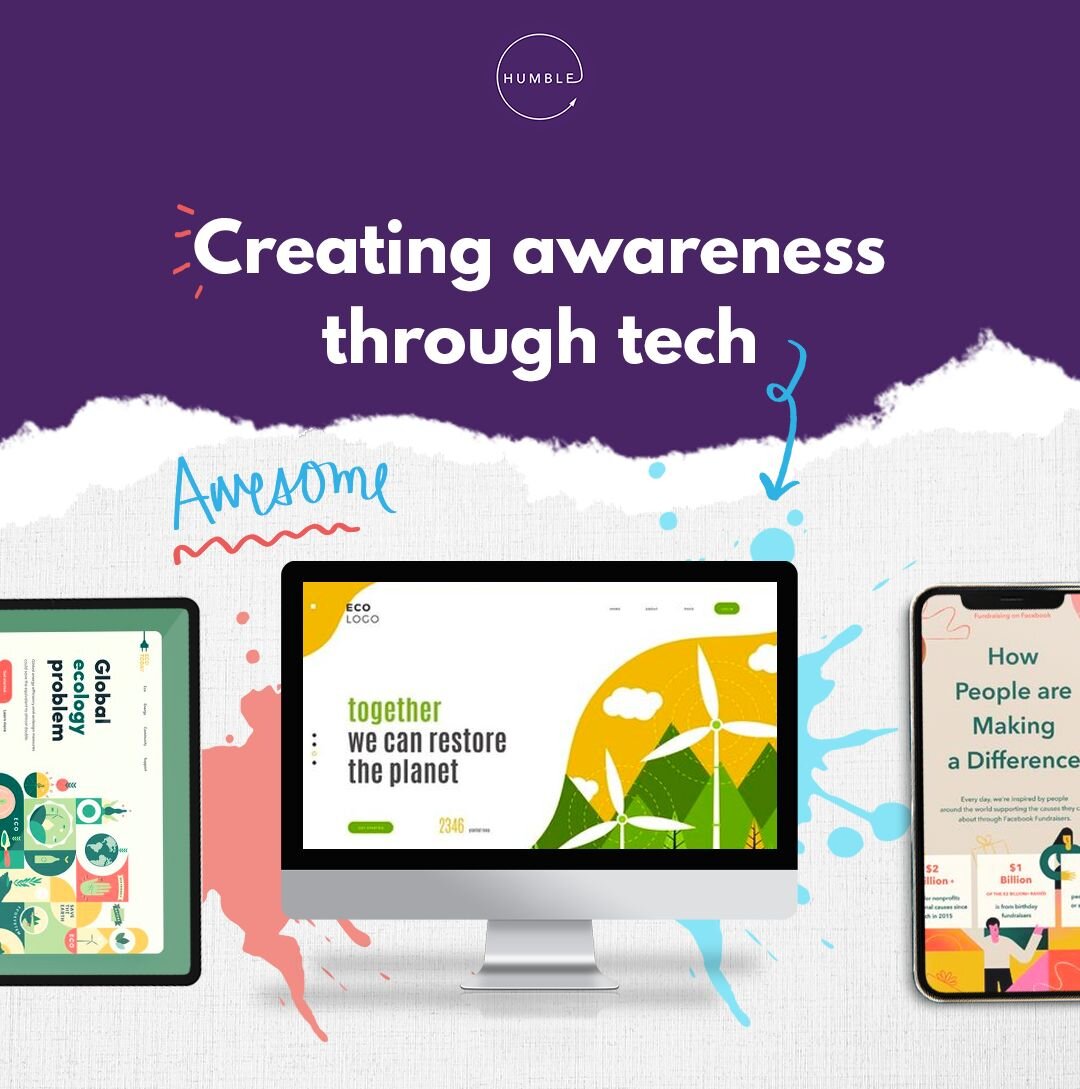Behind the scenes with Humble Sustainability, the startup that declutters your home for free
MAR 2021 — There’s two types of people in the world, the consumerist and the minimalist. Which are you? Consumerism started with the idea that citizens of a country should receive a steady supply of goods and services. The concept dates back all the way to the late 1600s in Europe, when steady purchase of products became a vitally important task for most people in society. In the Philippines, the notion of consumerism is relatively newer when compared to the rest of the world. The idea really took off during the US colony days. Arguably one of the most crippling US legacies, consumerism and materialism in the Philippines today is still a driving force in wealth inequality. As the traditional indoor mall shopping experience from the 1950s in many countries are becoming outdated and replaced with new multi-recreational outdoor experiences, the idea of buying that new car, watch, or shoe is still enticing to many of the Filipino people (and many other parts of the world). With respect to the Philippines social class hierarchical structure, consumption still appeals to superficially highlighting the divide between the haves and the have-nots.
Linear vs Circular Living
History is history, but how does the idea that more is better translate into society today? According to research done by Journal of Japan Society, “about 35,580 tons of garbage is generated every day in the Philippines.” The household category makes up 74% of waste in the Philippines, where 95% could be re-used or recycled. These numbers will keep rising as more Filipinos get access to greater standards of living in the coming decades.
Humble Sustainability co-founders Nina Mirabueno Opida, a Filipina native and Josef Werker, a British transplant to Manila, aim to tackle this problem by promoting the idea of circular living. Circular living has no beginning or end. It is a continuous cycle. Like all cycles, it goes through stages that change and evolve on an ongoing basis in response to the environment. Linear living, on the other hand, is one directional, and is oriented towards achievement of a goal. Often this goal is impossible, such as an economy that produces endless exponential growth. This idea is tightly coupled with consumerism, where we are consumers just continuously buying with no end goal but to impress our peers and keep up with the times. Don’t buy it? Think about it this way: How much of what you own in your home or closet right now do you actually never use? Follow-up: How much of it could be given away for someone else to actually make use of it? This is the exact service that Humble Sustainability offers—collecting what you don’t need and giving it to someone else who would make better use of it.
Nina and Josef collecting unused household goods from a client to be re-used, re-cycled, or up-cycled.
Free your home and your mind.
COVID-19 has exhausted so many Filipinos as they’ve been forced to stay indoors and re-evaluate their lives during one of the longest lockdowns on the entire planet. Josef says that “many people initially contacted us wanting to get rid of their unused items as a direct result of being forced to stay inside for so long.” But soon after, another surprising benefit was discovered through the various testimonies of Humble’s clients. “After collection, our clients were so grateful for an added sense of mental relief—raising hope for a cleaner, and brighter post pandemic world, “ adds Josef. By getting rid of things we don’t need, there is a sense of freedom that is truly refreshing. There is no longer a feeling of being tied down to material possessions and there is a new sense of independence.
“In the end, everyone wins. The less we consume and buy, the less damage we do to the environment too.”
This feeling is explained by the trendy ideology being popularized in the western world these last few years, minimalism. In a nutshell, minimalism is the idea that we should live contently with just the bare essentials and rid ourselves from endless consumption. Critics of minimalism seem to suggest that people purge their belongings to fit into a decor fad, but most people who actually talk about their own minimalist experience express feeling calmer in their homes. I suppose the best way is to just try it for yourself.
Joshua Fields Millburn and Ryan Nicodemus’s “The Minimalists: Less is Now”, which documents what it means exactly to live a minimalist lifestyle.
Minimalist debates aside, many who are reading this are probably wondering, including myself: What is the catch? How can Humble’s service be completely free? And most importantly, what exactly is happening to my stuff? How do I know that my Lola’s priceless neckless won’t end up in a landfill somewhere?
Upcycling—Is it the future?
Josef and Nina have a grand vision to make sure that all your donated items get re-used. One key effort in which they aim to do this is through up-cycling old products. The process of upcycling takes discarded objects or materials and refurbishes them to create a product of higher quality or value than the original item. If you were to take a stack of old newspapers and fold them to create a biodegradable flower pot, this would be an example of upcycling. One major gap today still lies within the affordability and scalability of upcycling, but Humble is prepared to take their process one step at a time.
Sustainability + Art
Once your donated items are in Humble’s hands, local Filipino designers are given creative freedom to come up with new exclusive product offerings that can be re-sold on a premium online marketplace for new owners to enjoy.
Humble recently announced a partnership with Maco Custodio, a sustainable fashion designer who is loved by Filipinos for his intricate shoe designs. Recently, Maco has been delving into caps, jewelries, handbags, pouches, and bagtags.
They have upcoming additional support of design partners like visual artist, sculptor and designer Jinggoy Buensuceso, visual artist, sustainability advocate Anina Rubio, and artist Leeroy New.
Anina Rubio
Anina Rubio is a multidisciplinary visual artist focused on creating works that depict beauty to affect and effect the audience to help conserve the planet. She’s passionate about using bamboo, found objects, as well as upcycled materials while cutting down on waste when creating art. She has painted murals across the country, and has partnered with schools, companies, and communities in promoting sustainability campaigns. (Source: aninarubio.com)
(Photo by aninarubio.com)
Jinggoy Buensuceso
Jinggoy Buensuceso is a Visual Artist and Sculptor based in the Philippines. His work evokes stories and bold statements of oneself, culture, and way of life through the use of clean lines with organic forms – the push and the pull. He is a material expert working primarily with metal, wood and cement. (Source: jinggoybuensuceso.com)
“I am inspired by the beauty and deeper form of nature. My studio is set up at home where I am most inspired by the greens around me and with my family and dogs close by. I am inspired by black. Black is creative, it is beautiful. It is the new white – an infinite canvas for possibilities.” (Photo by NOLISOLI)
Leeroy New
Leeroy New (b. 1986, General Santos City, Philippines) is a Manila-based multidisciplinary artist whose practice overlaps and intersects with different creative industries: fashion, filmmaking, theater, public installations, product design, and performance. This inclination to harness different modes of creative production has become the spine of his practice driven by concepts of world building, myth-making and social change. (Source: leeroynew.com)
Photo by UNIQLO Manila
Josef says that, “We are building a network of local communities and craftsmen, such as sewers, carpenters and welders, helping us bring these new product offerings to life. Looking outside Manila, we want to showcase different areas that make those regions of the Philippines unique in terms of design and craftsmanship.”
Bringing It Back to the Donor
When you donate through Humble, you don’t have to say goodbye to your stuff altogether. With their mobile decluttering app in the works, they plan to have a dashboard where donors can track where their old stuff has been sent to, who the new owner is, and what item it has transformed into.
“One of the biggest challenges with Filipino sustainability is education. We want people to be aware of their carbon footprint.”
To increase education, Josef and Nina plan to incorporate a carbon footprint dashboard where users can see how their daily habits may impact the planet. Eventually, they want to also gamify their mobile app to include ways in which to reward users for choosing to participate in carbon reducing activities.
Humble Sustainability is definitely still at its humble beginnings, but their bold ideas are transforming the way Filipinos think about their daily living habits. Beyond efforts to help expose Filipinos to sustainable living and support local communities, Humble is also inventing a unique way to connect tech with the arts in a form we’ve never seen before. Josef has some inspiring advice for any aspiring Filipino entrepreneurs who want to make impact in the country too:
I’m still making a billion mistakes everyday, but I decided to just be extremely passionate about something and give it a go. Understanding if you’re ready in your personal life to be the leader is unbelievably important. Don’t be obsessed with the idea, it’s just not as important as all of the other things. Moreover, be kind to other people because everyone in your network or team just deserves positivity. If you’re building a business and going with that mindset, it would set one in a better stead than trying to have a conquer mentality.
Entrepreneur Stats
NAME Nina Mirabueno Opida/Josef Werker
COMPANY Humble Sustainability
LOCATION Makati, National Capital Region
EDUCATION St. Scholastica's College/Eton College
Listen to our interview with Josef and visit our Thought Leader Series podcast page for more free episodes.







